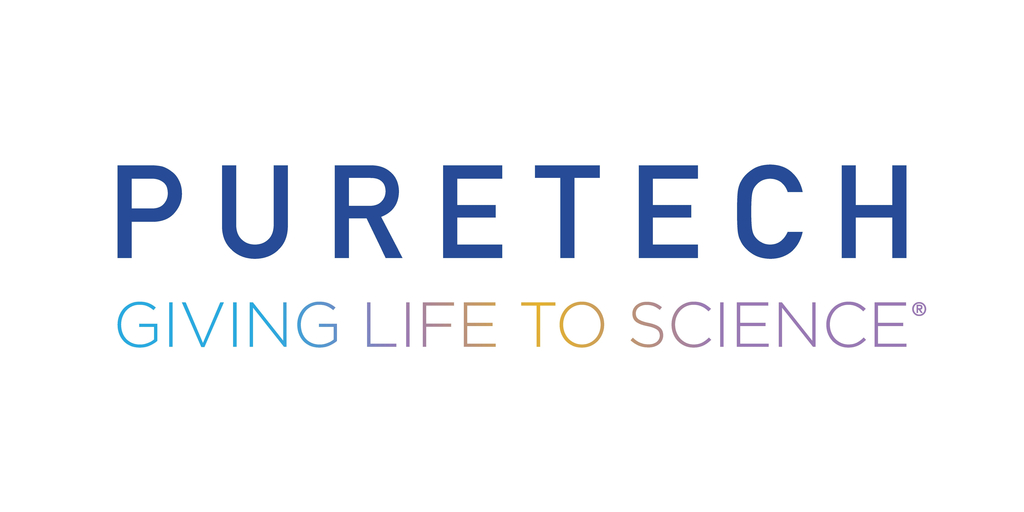LYT-200 is generally safe and well-tolerated as a single agent as well as in combination with standard-of-care venetoclax and hypomethylating agents
LYT-200 demonstrates clinical benefit as a single agent, with two partial responses and 59% of evaluable patients achieving stable disease or better
In combination, two complete responses were seen and 80% of evaluable patients achieved stable disease or better1
Data support LYT-200 as a potential first-line treatment for AML/MDS patients
BOSTON--(BUSINESS WIRE)--PureTech Health plc (Nasdaq: PRTC, LSE: PRTC) (“PureTech” or the “Company”), a clinical-stage biotherapeutics company dedicated to changing the lives of patients with devastating diseases, presented data from the dose escalation phase of its ongoing Phase 1b trial evaluating LYT-200, a first-in-class anti-galectin-9 monoclonal antibody, in patients with relapsed or refractory acute myeloid leukemia (AML) and myelodysplastic syndromes (MDS) at the 2024 American Society of Hematology (ASH) Annual Meeting in San Diego, California.
LYT-200 is currently being evaluated both as a monotherapy and in combination with the standard-of-care venetoclax and hypomethylating agents (HMA) for patients whose disease is relapsed/refractory to at least one line of prior treatment. It targets galectin-9, a glycan-binding protein that is significantly upregulated in AML and MDS and plays a key role in disease development, progression, immune interference and drug resistance. Initial results show a favorable safety profile across both arms and all dose levels with no dose limiting toxicities, as well as evidence of response, hematological improvement and sustained disease management.
“Relapsed/refractory acute myeloid leukemia is one of the most dire cancer diagnoses, with 50% of patients non-responsive to or relapsing after initial treatment and a median survival time of less than six months,2” said Luba Greenwood, J.D., Entrepreneur-in-Residence at PureTech who is leading the Gallop Oncology work. “We are encouraged to see that LYT-200 achieved responses as well as long-term disease stabilization in heavily pre-treated patients, and we look forward to progressing LYT-200 as a critical therapeutic option with the potential to treat most AML patients.”
In the monotherapy arm, patients received LYT-200 at five dose levels (2.0 mg/kg to 16.0 mg/kg). Across all dose levels, LYT-200 induced clinical benefit and responses in heavily pre-treated, relapsed/refractory AML/MDS patients, even in those with complex cytogenetics and mutations such as KRAS, NRAS, BRAF as well as patients previously fully refractory to standard of care. Out of 22 evaluable patients who received monotherapy, 59% achieved stable disease or better with two partial responses. The mean duration on treatment is greater than two months, which exceeds the standard overall survival of approximately 1.7 months in venetoclax/HMA-refractory patients.3
When administered in combination with venetoclax/HMA, results demonstrate that LYT-200 may enhance the efficacy of standard-of-care therapies, even in relapsed or refractory patients. In the combination arm, patients received LYT-200 across three dose levels (4.0 mg/kg to 12.0 mg/kg) with venetoclax/HMA. Out of 15 evaluable patients who received combination therapy, 80% achieved stable disease or better, with two experiencing complete responses and one patient achieving a morphologic leukemia free state (MLFS).1 The combination regimen has also demonstrated clinical benefit in patients with KRAS/NRAS mutations and the mean duration on treatment up until the point of data cut-off is greater than two months.
“Galectin-9 is an essential driver of both disease proliferation and immune suppression in AML that has not yet been addressed therapeutically,” said Aleksandra Filipovic, M.D., Ph.D., Head of Oncology at PureTech. “LYT-200 represents a novel approach for treating AML via a two-gear mode of action that kills cancer cells directly via apoptosis and DNA damage, as well as by re-activating central anti-cancer effectors of the immune system. We are excited by these Phase 1 data that demonstrate the transformative potential of this dual mechanism of LYT-200, both as a single agent and in combination with existing standard-of-care treatments.”
Pharmacodynamic assessments of treated patients, using gene and protein analyses of patient cells, validate the LYT-200 dual mode of action, and reveal AML cellular pathways as well as specific immune cell types which may be most critical for response.
Based on these data, LYT-200 will continue development in relapsed/refractory AML/MDS towards a Phase 2 clinical trial. PureTech previously announced that it intends to advance LYT-200 via its Founded Entity, Gallop Oncology.
About LYT-200
LYT-200 is a fully human IgG4 monoclonal antibody targeting a foundational oncogenic and immunosuppressive protein, galectin-9, for the potential treatment of hematological malignancies and locally advanced metastatic solid tumors, including head and neck cancers, with otherwise poor survival rates. A wide variety of preclinical data support the potential clinical efficacy of LYT-200 and the importance of galectin-9 as a target and suggest a potential opportunity for biomarker development. PureTech has presented data demonstrating high expression of galectin-9 across various solid tumor types and blood cancers and has found that, in several cancers, galectin-9 levels correlate with shorter time to disease relapse and poor survival. Preclinical work also demonstrates single mechanistic and anti-tumor efficacy of LYT-200 in multiple animal and patient-derived tumor cell models. For example, LYT-200 outperforms anti-PD-1 in preclinical models as a single agent. LYT-200 also synergizes with anti-PD-1 in activating CD4 and CD8 T cells in in vivo cancer models. LYT-200 is currently being evaluated in two ongoing Phase 1/2 adaptive design trials for the potential treatment of AML/MDS and head and neck cancers.
About PureTech Health
PureTech is a clinical-stage biotherapeutics company dedicated to giving life to new classes of medicine to change the lives of patients with devastating diseases. The Company has created a broad and deep pipeline through its experienced research and development team and its extensive network of scientists, clinicians and industry leaders that is being advanced both internally and through its Founded Entities. PureTech’s R&D engine has resulted in the development of 29 therapeutics and therapeutic candidates, including three that have been approved by the U.S. Food and Drug Administration. A number of these programs are being advanced by PureTech or its Founded Entities in various indications and stages of clinical development, including registration-enabling studies. All of the underlying programs and platforms that resulted in this pipeline of therapeutic candidates were initially identified or discovered and then advanced by the PureTech team through key validation points.
For more information, visit www.puretechhealth.com or connect with us on X (formerly Twitter) @puretechh.
Cautionary Note Regarding Forward-Looking Statements
This press release contains statements that are or may be forward-looking statements within the meaning of the Private Securities Litigation Reform Act of 1995. All statements contained in this press release that do not relate to matters of historical fact should be considered forward-looking statements, including without limitation those related to development plans for LYT-200, potential benefits to patients, and our future prospects, developments and strategies. The forward-looking statements are based on current expectations and are subject to known and unknown risks, uncertainties and other important factors that could cause actual results, performance and achievements to differ materially from current expectations, including, but not limited to, those risks, uncertainties and other important factors described under the caption “Risk Factors” in our Annual Report on Form 20-F for the year ended December 31, 2023, filed with the SEC and in our other regulatory filings. These forward-looking statements are based on assumptions regarding the present and future business strategies of the Company and the environment in which it will operate in the future. Each forward-looking statement speaks only as at the date of this press release. Except as required by law and regulatory requirements, we disclaim any obligation to update or revise these forward-looking statements, whether as a result of new information, future events or otherwise.
_________________________________
1Data as of November 4, 2024, were presented at ASH 2024. Figure reflects additional data generated through November 20, 2024.
2Miyamoto K, Minami Y. Cutting Edge Molecular Therapy for Acute Myeloid Leukemia. Int J Mol Sci. 2020;21(14):5114. Published 2020 Jul 20. doi:10.3390/ijms21145114
3Maiti A, Rausch CR, Cortes JE, et al. Outcomes of relapsed or refractory acute myeloid leukemia after frontline hypomethylating agent and venetoclax regimens. Haematologica. 2021;106(3):894-898. Published 2021 Mar 1. doi:10.3324/haematol.2020.252569
Contacts
PureTech
Public Relations
publicrelations@puretechhealth.com
Investor Relations
IR@puretechhealth.com
UK/EU Media
Ben Atwell, Rob Winder
+44 (0) 20 3727 1000
puretech@fticonsulting.com
US Media
Justin Chen
+1-609-578-7230
jchen@tenbridgecommunications.com






